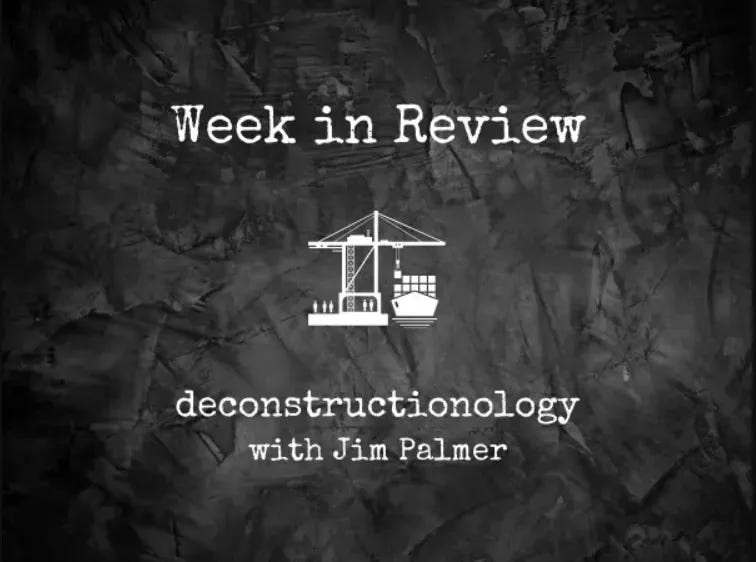Week in Review (October 7-13)
Life in Six Square Miles, What Would Tyler Durden Do, Charles Darwin as Your Spiritual Counselor, and Did Vanderbilt Defeating Alabama Prove the Existence of God
It was a big week for Amy and I. We moved from Nampa, Idaho to Thetis Island off British Columbia for a six-month stay. Back in July, after speaking at ORTCON24 (Open and Relational Theology Conference) at the Grand Tetons in Wyoming, we started investigating the possibility of renting our home for six months in order to travel abroad. A Canadian friend…
Keep reading with a 7-day free trial
Subscribe to Deconstructionology with Jim Palmer to keep reading this post and get 7 days of free access to the full post archives.



